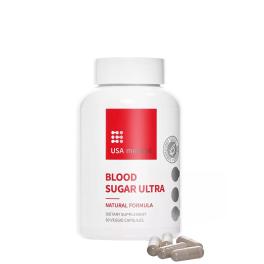Chromium is a mineral that is not considered essential (indispensable for life), but its effect on our body (including insulin balance) is significant. By helping insulin function, chromium plays a role in carbohydrate, protein and fat metabolism.
The carbohydrate content of the food that enters our body is broken down into sugar, and this sugar enters the bloodstream. In order for sugar to be transported from the bloodstream to cells that require energy (or to be stored as glycogen), insulin is needed. The hormone insulin (produced by the beta cells of the pancreas) allows cells to absorb sugar. As a result of an inappropriate lifestyle, the beta cells of the pancreas cannot produce enough insulin (this is type 2 diabetes) or the insulin-sensing receptors become insensitive (this is insulin resistance).
Chromium increases the sensitivity of insulin-sensing receptors, thereby improving insulin resistance. Confirming this, several studies have concluded that chromium can improve type 2 diabetes or insulin resistance.
Due to its beneficial effect on the insulin hormone and thus carbohydrate metabolism, it is found as an ingredient in many fat burners.
In addition, chromium also has antioxidant effects.
Foods rich in chromium:
- Beef, pork and turkey
- Grapes and oranges, bananas, apples (peel)
- Iceberg lettuce, green beans, tomatoes
Recommended Chromium Intake (RDI):
- For men: 35 mcg
- For women: 25 mcg
- During pregnancy: 30 mcg
- Breastfeeding: 44 mcg
Tolerable upper limit:
A tolerable upper limit has not been established for chromium, as its excessive consumption is probably not harmful for healthy people. However, excessive intake may cause side effects in people with kidney and liver disease.























